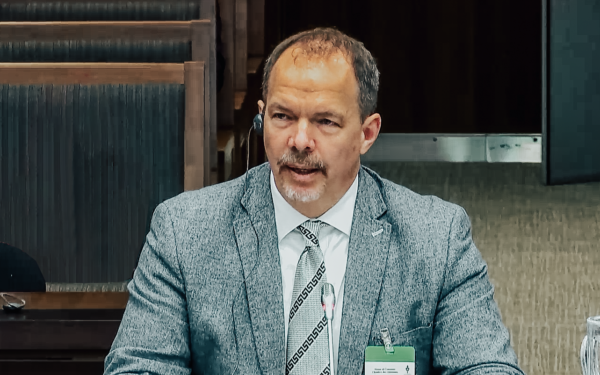The threats before us are tremendous. But technical measures to make the internet safer must not create a slippery slope that could lead to blocking content or free expression.
This piece originally appeared in IT World Canada on April 30, 2021.
Every hour of every day, a silent siege is underway. Countless malicious actors are weaseling their way through cyberspace, probing for openings to steal your money, your identity, to hold your organization ransom – or generally just ruin your day.
Mostly they fail, thanks to cybersecurity efforts churning behind the scenes, or your own precautions. But just often enough they succeed and wreak havoc.
The threats multiplied during the pandemic, with one-quarter of Canadian organizations reporting that they were targeted with a COVID-19 themed cyber-attack. This is an endless war, but one we must win.
Many cyber-attacks are facilitated by botnets—networks of hacked devices run by bad actors. The role telcos play in defending against botnets has captured the attention of the Canadian Radio-television and Telecommunications Commission (CRTC).
The CRTC has proposed a new framework that would formalize what many internet service providers (ISPs) already do to help block botnet traffic suspected of “malicious cyber activity,” and has asked the public for input.
You may not have heard of this proceeding because it has been lightly reported. But anyone who uses the internet should be paying attention.
Byron Holland (MBA, ICD.D) is the president and CEO of the Canadian Internet Registration Authority (CIRA), the national not-for-profit best known for managing the .CA domain and developing new cybersecurity, DNS, and registry services.
Byron is an expert in internet governance and a seasoned entrepreneur. Under Byron’s leadership, CIRA has become one of the leading ccTLDs in the world, with over 3 million domains under management. Over the past decade, he has represented CIRA internationally and held numerous leadership positions within ICANN. He currently sits on the Board of Directors for TORIX, and is a member of the nominations committee for ARIN. He lives in Ottawa with his wife, two sons, and their Australian shepherd, Marley.
The views expressed in this blog are Byron’s opinions on internet-related issues, and are not necessarily those of the organization.




